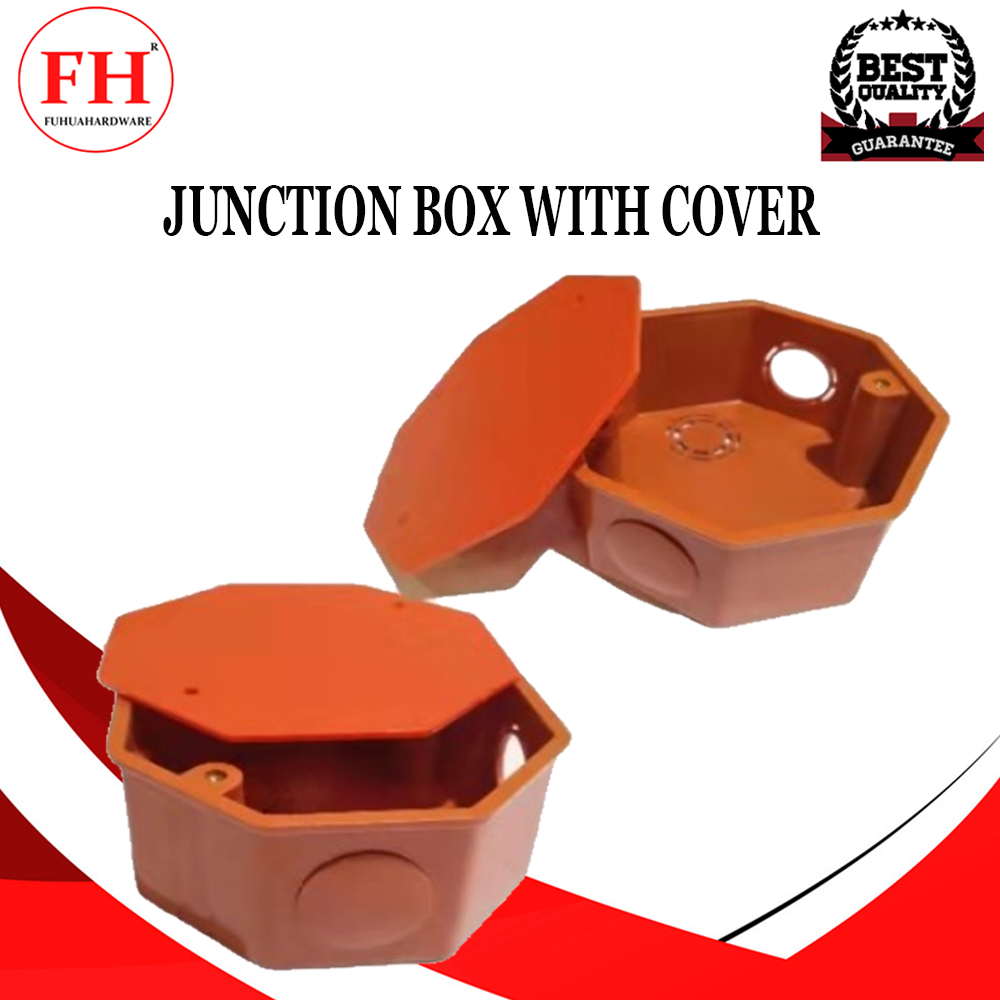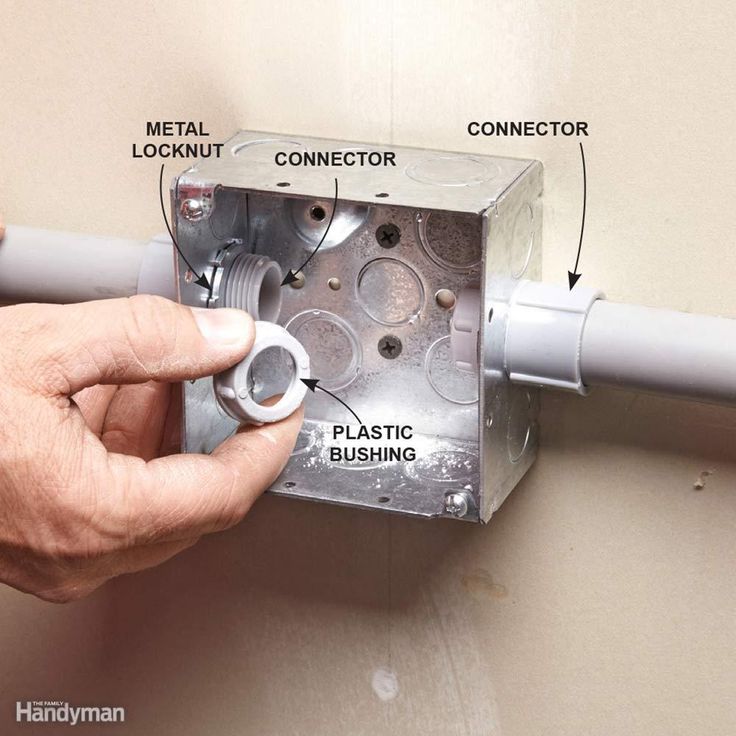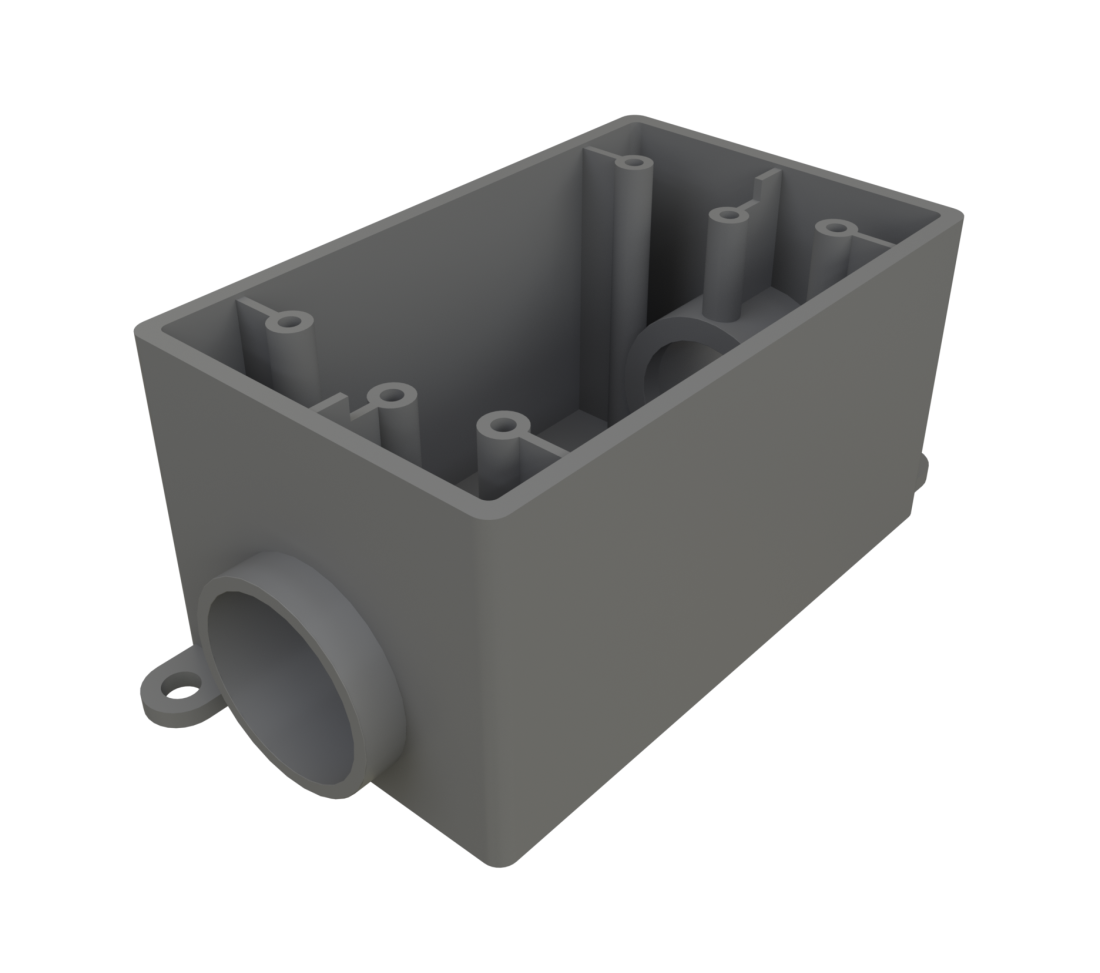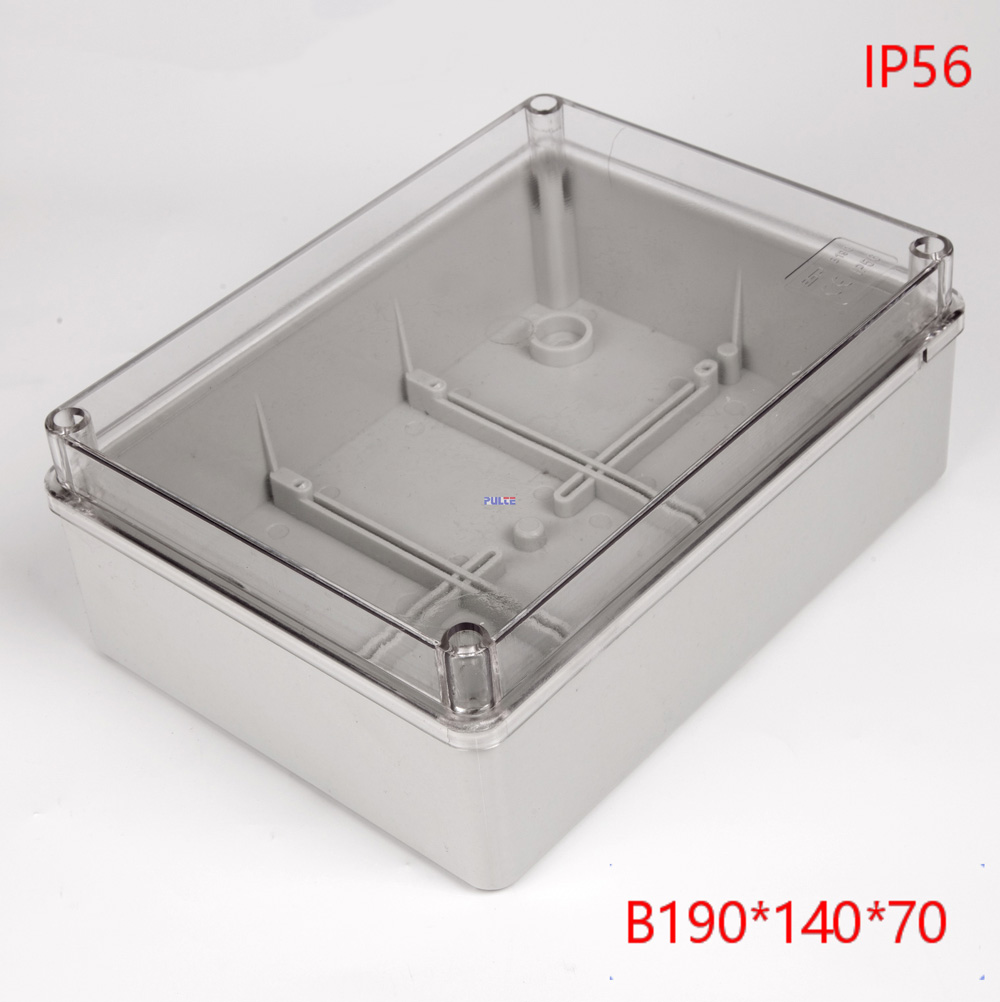Fun Tips About Can I Use Plastic Junction Box

Electrical Junction Box Plastic
Plastic Junction Boxes
1. What's the deal with plastic junction boxes, anyway?
Let's face it, electrical work can seem a bit intimidating. All those wires, the potential for shocks — it's enough to make anyone a little hesitant. But fear not! Today, we're diving into the world of plastic junction boxes. These unassuming little containers play a vital role in your home's electrical system, protecting connections and keeping things safe. We'll explore whether they're a suitable choice for your next electrical project. Think of me as your friendly neighborhood electrical decoder, ready to unravel the mysteries of wires and boxes.
So, can you actually use a plastic junction box? The short answer is generally yes, but with caveats. Plastic boxes have become increasingly common and are approved for many residential applications. They're lightweight, non-conductive (a major plus when dealing with electricity), and generally easier to work with than their metal counterparts. However, it's not always a straightforward choice. There are building codes, specific applications, and box ratings to consider. Lets break it down further!
Imagine youre rewiring a light fixture in your bathroom. A plastic junction box might be perfectly acceptable for this scenario. Its a dry location, and the wiring isnt likely to be subjected to extreme temperatures or physical stress. Now, picture yourself running wiring for an outdoor shed. In this case, you might need a more robust, weather-resistant box, possibly even a metal one, depending on local regulations. See, it's not just about the material; it's about the specific situation.
Think of choosing a junction box like ordering coffee. You wouldn't order a cappuccino if you wanted a strong, black coffee to wake you up, would you? Similarly, you wouldn't choose a standard plastic box for a heavy-duty outdoor application. The right choice ensures safety and compliance, and a long lasting installation! We will explain that furthermore below.

Understanding the Pros and Cons
2. Plastic vs. Metal
Plastic junction boxes, typically made from PVC or other polymers, offer some compelling advantages. As mentioned earlier, they're non-conductive, which significantly reduces the risk of shocks. They're also resistant to corrosion, making them ideal for damp or humid environments (within limitations, of course). Plus, they're usually lighter and easier to cut and drill, which can save you time and effort during installation.
But plastic isn't perfect. Metal junction boxes, typically steel or aluminum, offer superior strength and durability. They're better at withstanding physical impact and extreme temperatures. Metal boxes can also provide better electromagnetic shielding, which can be important in certain applications. And, in some cases, local electrical codes may require metal boxes for specific wiring situations.
Consider a scenario: you're installing a new outlet in your garage. If you plan on doing some serious woodworking or other activities that could involve accidental bumps or knocks, a metal box might be a wiser choice. It can withstand the occasional mishap better than a plastic one. On the other hand, if the outlet is in a protected area, a plastic box might be perfectly adequate.
So, how to choose? Imagine you're picking between a reliable sedan (plastic) and a rugged pickup truck (metal). The sedan is great for everyday commuting, fuel-efficient, and comfortable. The truck, however, is built for tougher jobs, hauling heavy loads, and navigating rough terrain. Your choice depends on your needs and the specific demands of the task at hand.

Decoding Electrical Codes and Regulations
3. Playing by the Rules
Electrical codes exist for a reason: to keep you and your property safe. These codes vary from location to location, so it's crucial to check your local regulations before starting any electrical work. These regulations will specify when and where plastic junction boxes are permitted, as well as any specific requirements for their installation. Ignoring these rules can lead to dangerous situations, failed inspections, and even legal penalties.
Think of electrical codes as the "rules of the road" for your home's electrical system. Just as you wouldn't drive on the wrong side of the road, you shouldn't ignore electrical codes. They're designed to prevent accidents and ensure that your electrical system operates safely and efficiently. Failing to comply is like driving without a license — you might get away with it for a while, but eventually, you'll run into trouble.
Always consult with a qualified electrician if you're unsure about any aspect of your electrical work. They can provide expert guidance on local codes, proper installation techniques, and the appropriate types of junction boxes for your specific application. Remember, electricity is not something to be taken lightly. It's always better to err on the side of caution and seek professional advice when needed.
Let's say you're adding a new circuit to your home. The local electrical code might require you to use metal conduit and metal junction boxes for certain parts of the wiring. Ignoring this requirement could lead to a failed inspection, and you'd have to redo the work, costing you time and money. Save yourself the hassle and ensure you're compliant from the start!

How To Install A Junction Box 8 Steps Polycase
Installation Considerations and Best Practices
4. Putting it All Together
Even if plastic junction boxes are permitted in your situation, proper installation is crucial. Make sure the box is securely mounted and that all wiring connections are tight and properly insulated. Use appropriate cable clamps to secure the wires entering the box and prevent them from being pulled out. A loose connection or poorly insulated wire can create a fire hazard.
When working with plastic boxes, be careful not to overtighten screws, as this can crack the plastic. Use a screwdriver with a comfortable grip and apply just enough pressure to secure the wires. It's also a good idea to use wire connectors that are specifically designed for use with plastic boxes. These connectors will provide a secure and reliable connection without damaging the plastic.
Imagine you're building a house of cards. You need to place each card carefully and precisely to ensure that the structure is stable and doesn't collapse. Similarly, when installing a junction box, you need to pay attention to every detail to ensure that it's safe and reliable. A poorly installed junction box is like a weak card in the house of cards — it can compromise the entire system.
Always double-check your work before closing up the junction box. Make sure all the wires are properly connected, insulated, and secured. Use a voltage tester to verify that there are no exposed wires or potential hazards. And, of course, always turn off the power to the circuit before working on any electrical components. Safety first!

PVC Single Gang Device Boxes
When to Call a Professional
5. Knowing Your Limits
While some electrical tasks can be safely performed by homeowners, others require the expertise of a licensed electrician. If you're dealing with complex wiring, unfamiliar circuits, or any situation that makes you feel uncomfortable, it's always best to call a professional. They have the training, experience, and tools to handle even the most challenging electrical projects safely and efficiently.
Attempting to perform electrical work beyond your skill level can be dangerous and potentially life-threatening. It's not worth risking your safety or the safety of your family to save a few dollars. A qualified electrician can ensure that your electrical system is safe, compliant, and functioning properly. Think of it as investing in peace of mind.
Consider a scenario: you're trying to troubleshoot a mysterious electrical problem that's causing your lights to flicker and your appliances to malfunction. You've checked the circuit breaker, but the problem persists. In this case, it's time to call an electrician. They can diagnose the problem, identify the cause, and recommend the appropriate solution. They're like electrical detectives, solving mysteries that would baffle the average homeowner.
In conclusion, while plastic junction boxes are a common and often suitable choice for many electrical applications, it's essential to understand their limitations and comply with local electrical codes. When in doubt, always consult with a qualified electrician to ensure your safety and the integrity of your electrical system. Remember, electricity is a powerful force, and it's best left to the experts when you're unsure.

FAQ
6. Your Burning Questions Answered
Q: Can I use a plastic junction box outdoors?A: It depends! Some plastic boxes are rated for outdoor use, but you'll need to ensure they're specifically designed for that purpose and properly sealed against moisture. Check the box's UL listing and local electrical codes.
Q: Are plastic junction boxes fire-resistant?A: Plastic boxes are not generally considered fire-resistant in the same way that metal boxes are. However, they are typically made from self-extinguishing materials that won't easily ignite and spread flames.
Q: What size junction box do I need?A: The size of the junction box depends on the number and size of the wires you'll be connecting inside. There are specific rules for calculating the required box volume, so it's best to consult with an electrician or refer to your local electrical code.
Q: Can I paint a plastic junction box?A: Yes, you can paint a plastic junction box, but use a paint that is suitable for plastic surfaces. Make sure the paint does not interfere with the box's functionality or safety features.